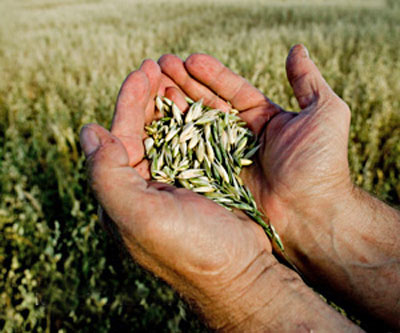|
from NaturalNews Website
We are led to believe that
whole grains are a perfectly
healthy alternative to
refined grains when, in fact, they
also present a whole host of dangers to our health.
Pre-industrialized societies fermented grains so that they were more easily digested and their vitamins and minerals could be better absorbed. Today, grains are sprayed with pesticides while they are growing and then are milled at high temperatures, which causes their fatty acids to spoil and become rancid. The milled flour becomes even more rancid when it's stored for long periods of time.
Preservatives, stabilizers and additives
are added to flour and it becomes much less beneficial and even
harmful to our health.
This prevents the body from being able
to absorb these nutrients. Therefore, consuming large amounts of our
modernly prepared whole grains can cause the body to become
mineral deficient.
This causes allergies and other digestive and autoimmune disorders, such as,
This has caused the emergence of the paleolithic diet, which resembles the diet of cavemen based on wild plants and animals. Before the development of agriculture, our ancestors did not have access to grains and some believe that the human body has not genetically adapted to a grain-based diet and that those who follow a "paleo diet" are less likely to contract diseases.
While there are countless versions of
the paleo diet, it commonly consists of fish, grass-fed pasture
raised meat, eggs, roots, nuts, fruits and vegetables and cuts out
grains, dairy and refined sugars.
If possible, buy organic whole grains and grind them yourself with a home grinder. If you're short on time, look for organic stone ground, sour dough or sprouted whole grain products at the store.
Also, grains are better digested when
they are eaten with fat soluble vitamins A and D. Enjoy your grains
with butter, cream or whole cheese to improve nutrient absorption.
|

